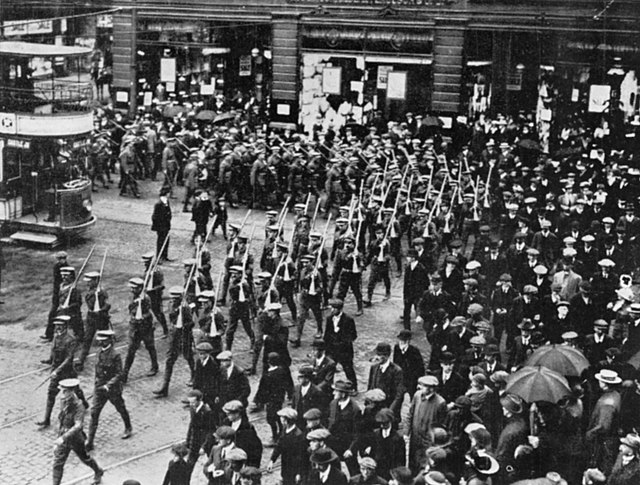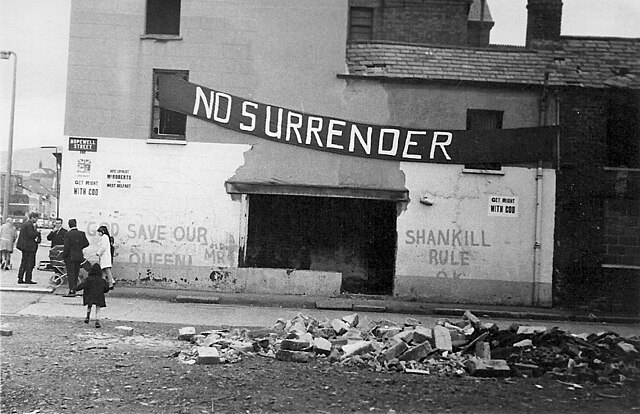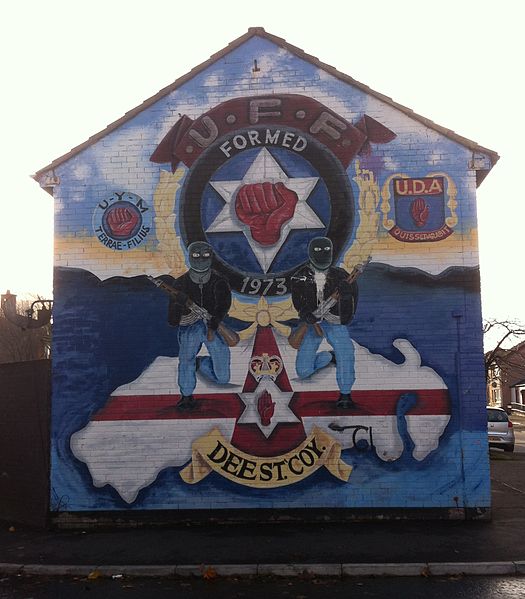Parades in Northern Ireland
Parades are a prominent cultural feature of Northern Ireland. The overwhelming majority of parades are held by Ulster Protestant, unionist or Ulster loyalist groups, but some Irish nationalist, republican and non-political groups also parade. Due to longstanding controversy surrounding the contentious nature of some parades, a quasi-judicial public body — the Parades Commission — exists to place conditions and settle disputes. Although not all parading groups recognise the Commission's authority, its decisions are legally binding.
Members of the Royal Black Institution parade in Lisburn on "Black Saturday", 2007.
Ulster loyalism is a strand of Ulster unionism associated with working class Ulster Protestants in Northern Ireland. Like other unionists, loyalists support the continued existence of Northern Ireland within the United Kingdom, and oppose a united Ireland independent of the UK. Unlike other strands of unionism, loyalism has been described as an ethnic nationalism of Ulster Protestants and "a variation of British nationalism". Loyalists are often said to have a conditional loyalty to the British state so long as it defends their interests. They see themselves as loyal primarily to the Protestant British monarchy rather than to British governments and institutions, while Garret FitzGerald argued they are loyal to 'Ulster' over 'the Union'. A small minority of loyalists have called for an independent Ulster Protestant state, believing they cannot rely on British governments to support them. The term 'loyalism' is usually associated with paramilitarism.

The Union Flag, Ulster Banner and Orange Order flags are often flown by loyalists in Northern Ireland.
Ulster Volunteers in Belfast c.1914
Loyalist graffiti and banner on a building in a side street off the Shankill Road, Belfast (1970)
A UDA/UFF mural in Belfast





